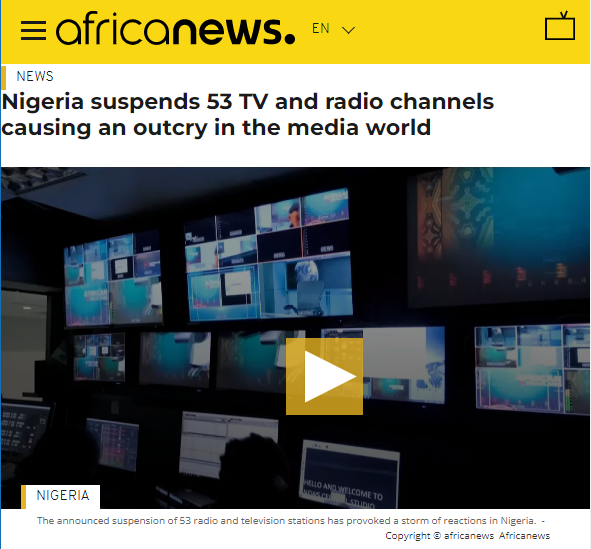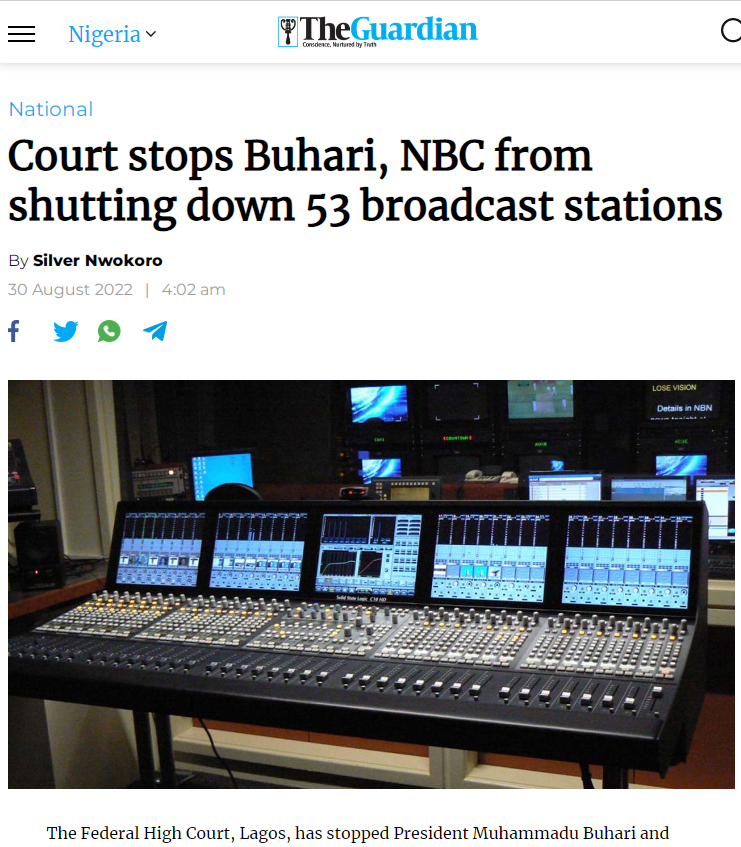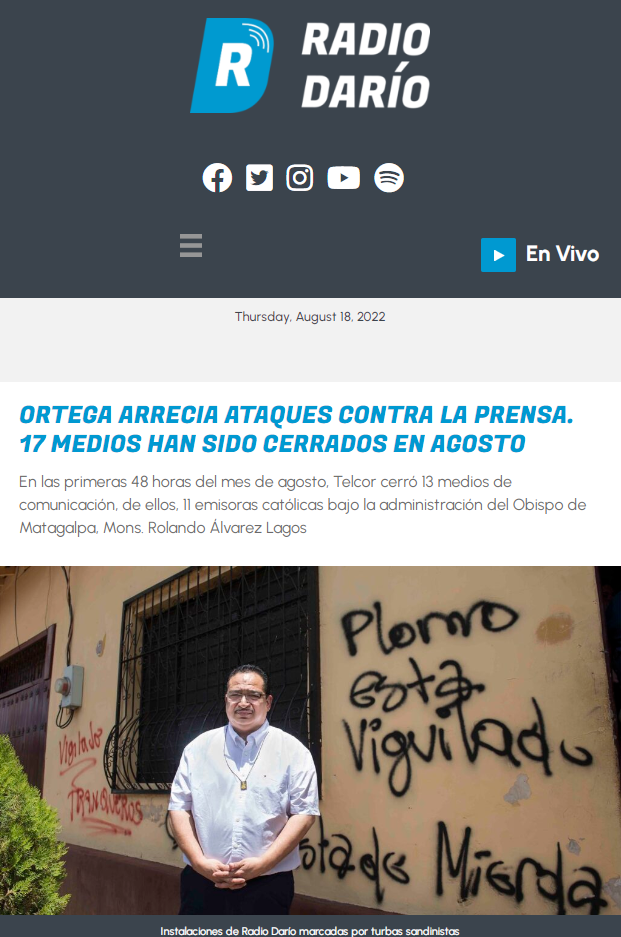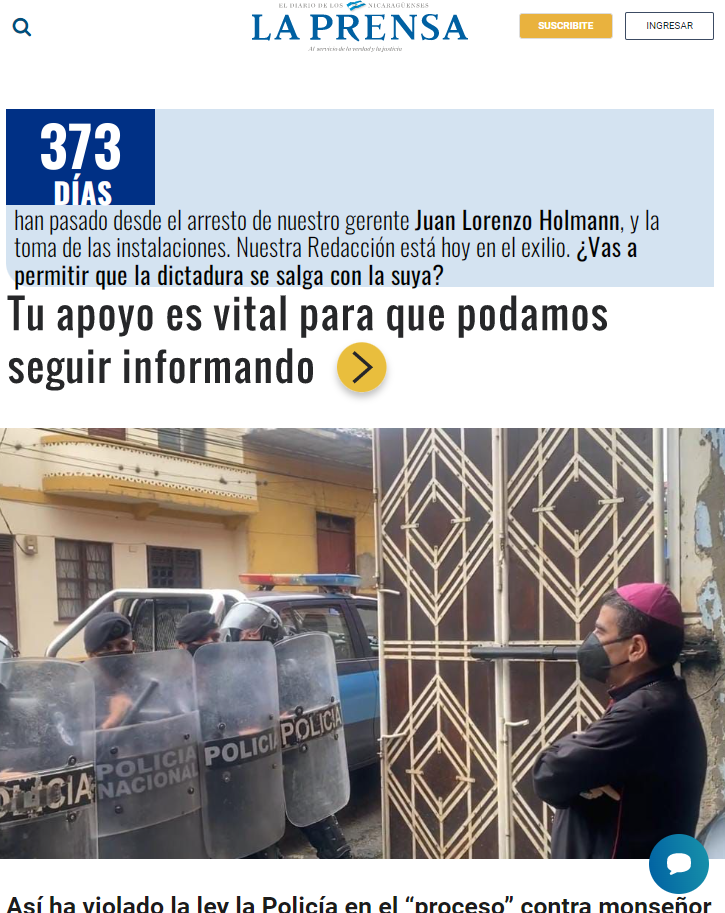
Source
Closing inconvenient broadcasters by claiming that their licence has expired is a typical vice of authoritarian regimes. Which, in the most perfidious guises, do not respond to broadcasters or do not issue a receipt even if the publisher delivers the application in person (this happened in Nicaragua to the bishop Rolando José Álvarez, we reported on it here). But in a democratic state, gagging stations is a little more difficult. As the recent case of Nigeria shows: last week, the chairman of the National Broadcasting Commission (NBC) had given 53 radio and television stations 24 hours to pay the fee or else be suspended from broadcasting.
Appeal won

Revoking the licences of 53 broadcasters and shutting down their operations would seriously affect the rights of millions of Nigerians
Source
An appeal was immediately lodged against the article in the regulation that NBC wanted to use to revoke the licences (claiming that it is unconstitutional and illegal, as it violates freedom of expression), and also against President Muhammadu Buhari. In defence of the broadcasters, the Socio-Economic Rights and Accountability Project (SERAP), a non-governmental organisation that protects economic and social rights in Nigeria, and the Nigerian Guild of Editors (NGE) have come to the defence. Justice was swift: on 29 August, Judge Akintayo Aluko of the Federal High Court in Lagos issued an interim order preventing the revocation of the licences and adjourned the case until 8 September 2022.



